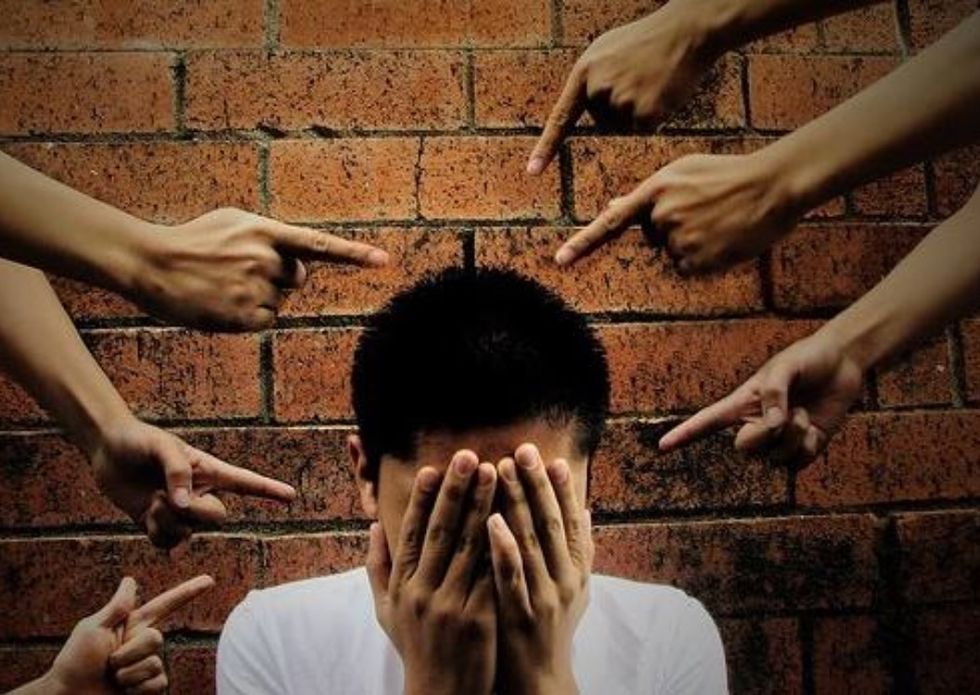Modern society has an affinity for suffering. With all of the information we consume on a daily basis, it’s no wonder this is the case. Since news is so often about a tragedy, we’ve become immune to its emotional effects. Subconsciously, maybe we’re even keen on it. We’re almost constantly welcoming the next catastrophe into history, and, even so, it never seems to be enough. Every day we mourn whatever’s been lost and continue on to share our unspeakable pain with others, doing what we, as human beings, do best: making everything about us.
In the age of the internet, your emotions can be materialized into something “real” at the touch of a button: a tweet, a post, a blog. For this, we are inclined to get involved with every tragedy and often express our instinctual responses through some sort of online forum. Furthermore, our countless interactions with and debates about what our newsfeed provides are (I would assume) a leading cause of stress in people of modernized cultures. Add that to the fact that many have an internet addiction and you end up with a whole new breed of emotional experiences. This is the confused, empathetic, vicarious pain we’ve been force fed by the media; in a way, we’re all suffering from exposure.
That being said, this exposure tricks us all into thinking we’re experts in what qualifies as suffering. We believe that we’ve seen it all, even the worst atrocities, and that, even though most of us are unaffected, we understand. The world’s misfortunes then end up on a sort of perverted spectrum, from the least tragic, to the most, by those who are far removed from it. Constantly ranking and validating the trials of others, we often leave people feeling unsupported or trivialized. We may even do this to ourselves.
This is, very often, what plagues me.
I’ve heard it said that depression is characterized by sadness in any of its forms. The weepy kind, the numb kind, maybe even the kind that no one can see. But no one ever told me that one of the primary symptoms of depression is, unsurprisingly, guilt.
Guilt is a dull emotion, I think, and is often confused with sadness, insecurity, or even contempt. It manifests itself in so many ways, and one of them is depression. Since we live in a world that is still skeptical towards the reality that mental illness is a physical (chemical) illness, we consequently live in a world that makes a habit of devaluing the persistent pain that those living with mental illness often feel. I can’t even begin to tell you how many ways people, including myself, have tried to “comfort” me in doing just that.
“Come on, there are starving kids in Africa, you’re fine.” “Your life could be so much worse.” “You have no reason to be sad when there are people out there with real problems who find a way to smile.”
Hearing those things still, to this day, makes me sick with guilt. I’ve been provided with a very charmed life, and have always felt there was injustice in that. I pride myself on being very aware and informed about the world beyond my line of vision, so I understand full well how good I have it. Even so, I’m depressed. So, I search for “valid reasons” to be sad, from body image to friendships, school stress to romantic pursuits. I fight with those I love and neglect my responsibilities to give myself some observable source of my pain, and still, what I feel makes no sense. I’ve ended up disgusted with myself at times. I’m so ungrateful, I’d think, so dramatic, I’d accuse, and from there I only got worse. After all, you can’t escape cruelty if it’s in your own mind, or, even more so, if your judgment and that which you’re judging are forced to coexist inside your brain.
I am under no illusion of my life being wholly unique. This struggle is not mine, but ours, the human race. Being the empathetic creatures we are, whose empathy has been pushed to its limits by globalization, we’re quick to judge those experiencing pain that we cannot see. We’ve become accustomed to consuming news like entertainment and reap nothing but a false sense of enlightenment from it and this farce hurts us all, especially those who are told that their suffering is invalid. Whether it be mental illness, body image problems, interpersonal struggles, etc., we all experience some sort of “invalid” pain at one time or another, but we still dismiss it. In others, and in ourselves.
Frustratingly, for mental health, it has become systemic. The dismissal. And the reality is, people die, or live a lie, because of it.

















